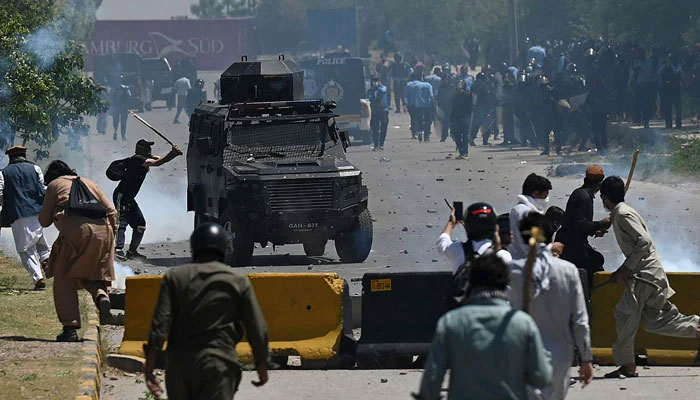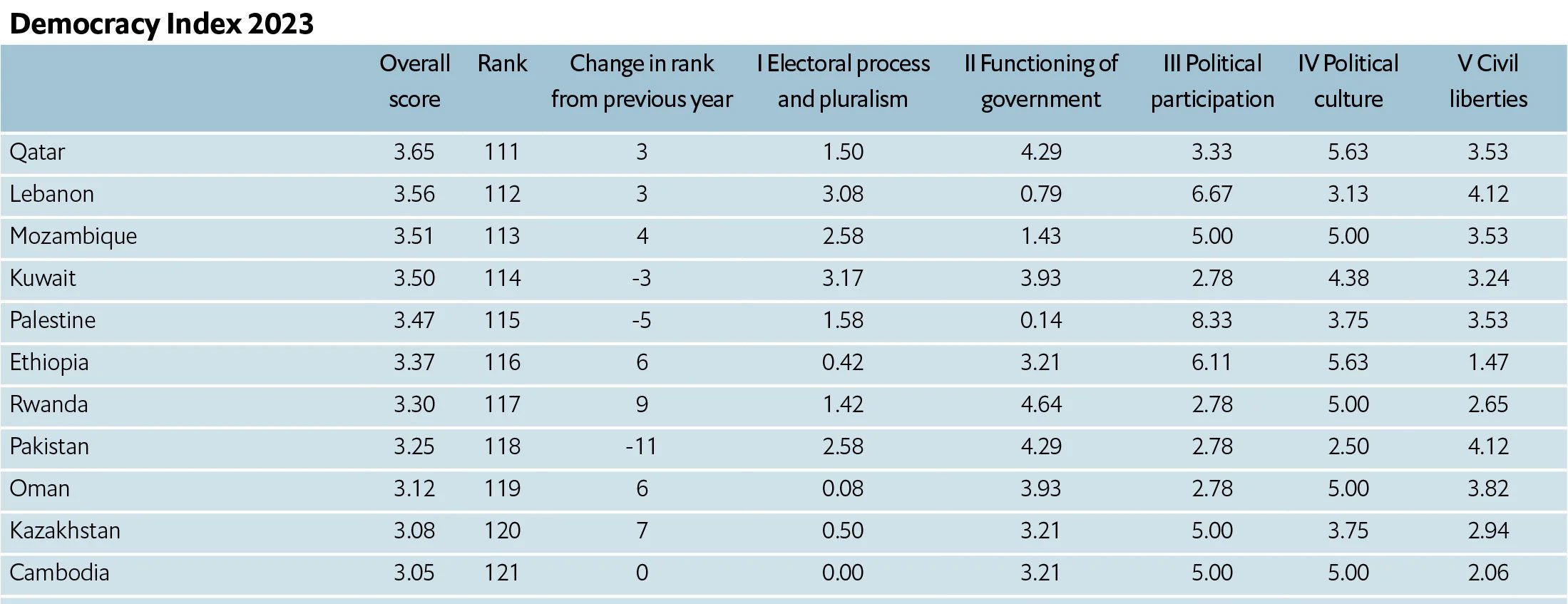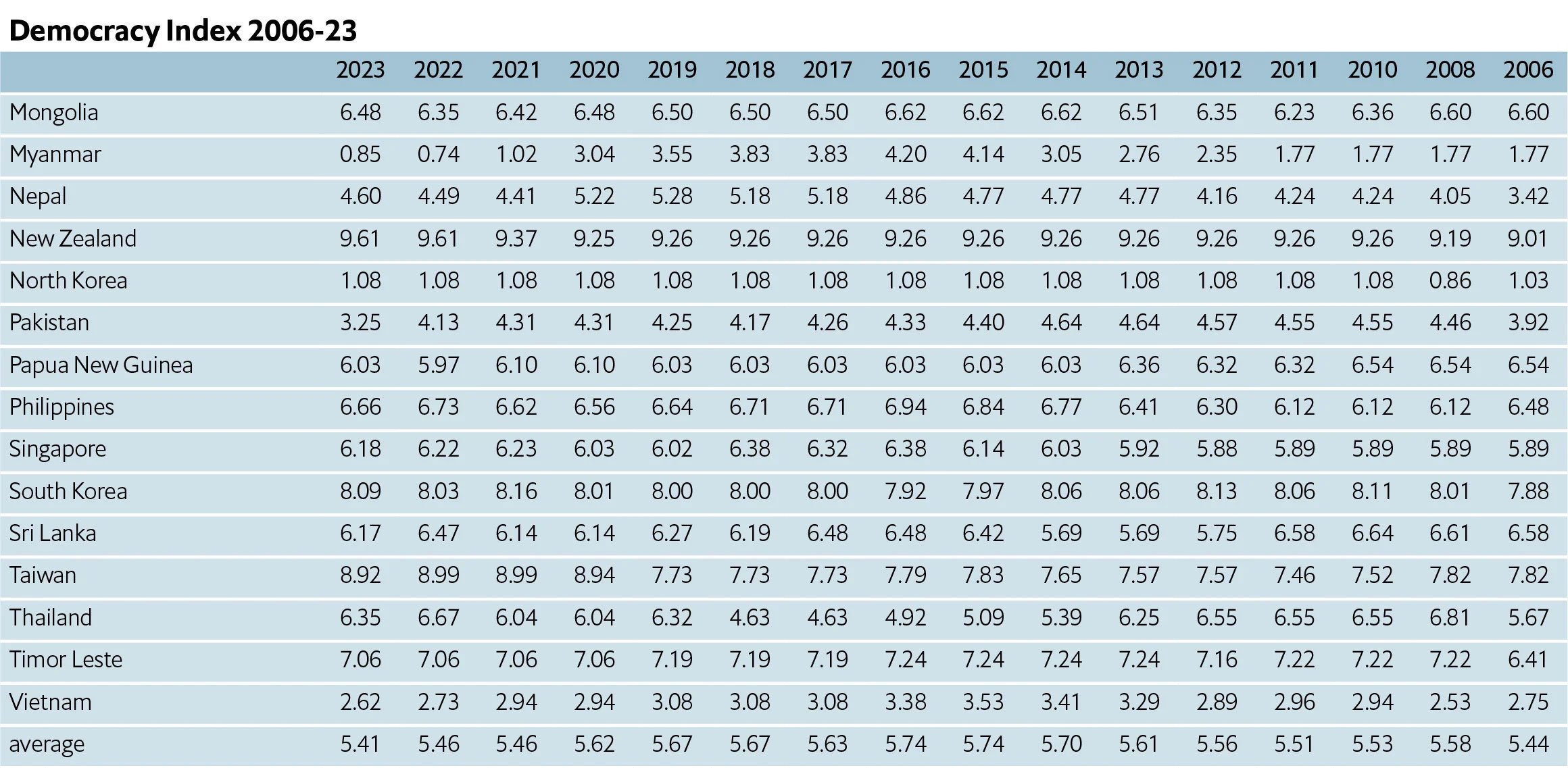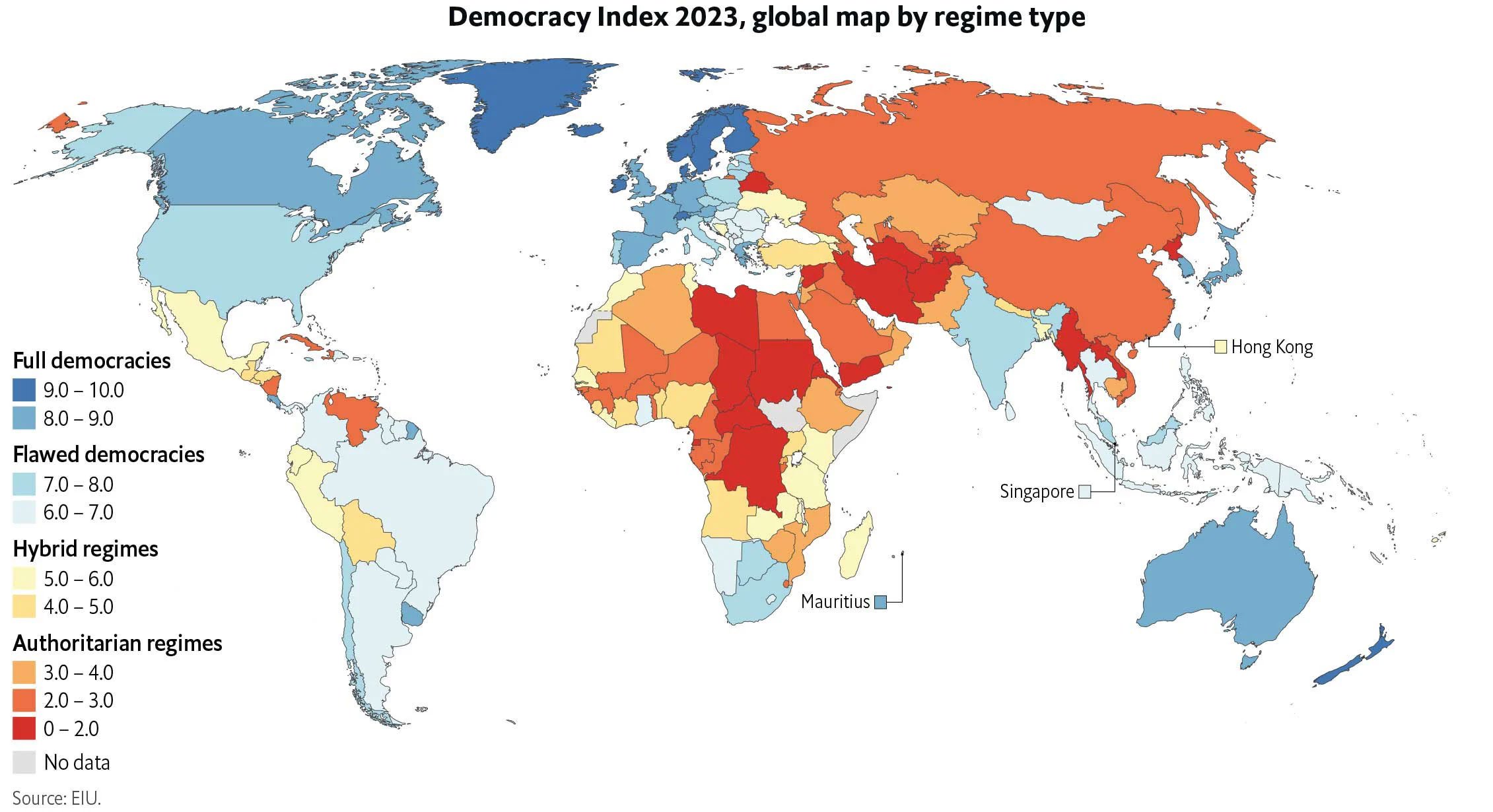Pakistan downgraded to 'authoritarian regime' on Democracy Index
Of 28 countries in region that are included in index, 15 recorded a decline in their score
In its Democracy Index 2023 report, the Economist Intelligence Unit (EIU) has downgraded Pakistan to an “authoritarian regime”, registering the greatest deterioration of any country in the region classified as "Australia and Asia".
The EIU Democracy Index provides a snapshot of the state of democracy in 165 independent states and two territories.
Of the 28 countries in the region that are included in the index, 15 recorded a decline in their score, and only eight registered an improvement.
Pakistan’s score on the Democracy Index fell by 0.88 to 3.25, resulting in a fall of 11 places in the global ranking table, to 118th.
The EIU report mentioned that alongside meddling in the electoral process and government dysfunction, the independence of the judiciary has been severely curtailed in the country.
Pakistan is the only Asian country to be downgraded, having been reclassified from a “hybrid regime” to an “authoritarian regime”.
Pakistan's score on the democracy index remained a little over 4 since 2008. It was for the first in 2023 that the country's score tumbled to 3.25 during the coalition government primarily comprising of Pakistan Muslim League-Nawaz (PML-N), Pakistan Peoples Party (PPP) and Jamait Ulema-e-Islam Fazl (JUI-F).
Interestingly, Pakistan's 2023 score on the democracy index is even worse than 2006 (3.92) when military ruler Gen (retd) Pervez Musharraf was at the helm of the affairs.
Speaking to Geo.tv, Pakistan Institue of Legislative Development and Transparency (Pildat) Ahmed Bilal Mehboob termed Pakistan's downgrading as "disappointing".
"This is a very disappointing development as Pakistan has scored the lowest since 2017 and our category has also been downgraded from a hybrid regime’ to an authoritarian regime," he added.
He also urged all stakeholders to "undertake serious soul searching at this state of affairs".
Global democracy standards witnessed decline
Democratic standards across the world fell in 2023 amid the spread of wars, authoritarian crackdowns, and declining levels of trust in mainstream political parties, the EIU said.
The number of countries classified as democracies increased by two, to 74, in 2023. However, measured by other metrics, the year was not an auspicious one for democracy, as per the report.
The global average index score fell to 5.23, down from 5.29 in 2022. This is in keeping with a general trend of regression and stagnation in recent years, and it marks a new low since the index began in 2006. Most of the regression occurred among the non-democracies classified as “hybrid regimes” and “authoritarian regimes”.
Between 2022 and 2023 the average score for “authoritarian regimes” fell by 0.12 points and that for “hybrid regimes” by 0.07 points. The year-on-year decline in the average score of the “full democracies” and “flawed democracies” was modest by comparison, falling by 0.01 and 0.03 points respectively.
According to EIU's measure of democracy, almost half of the world’s population lives in a democracy of some sort (45.4%). Only 7.8% reside in a “full democracy”, down from 8.9% in 2015.
More than one-third of the world’s population lives under authoritarian rule (39.4%), a share that has been creeping up in recent years.
-
Security forces gun down 30 terrorists in multiple IBOs in KP: ISPR
-
MQM-P calls for new province in Sindh
-
US report validates Pakistan military edge over India: PM
-
Banned TTP poses serious threat to Pakistan security: UNSC panel
-
CM Afridi clarifies remarks on by-poll after ECP requests army deployment
-
Dubai sees 3.2m Pakistani passengers in 2025 as airport sets new milestone
-
Security forces kill 23 Indian proxy terrorists in KP's Kurram
-
Pakistan to construct island to boost oil exploration: report















